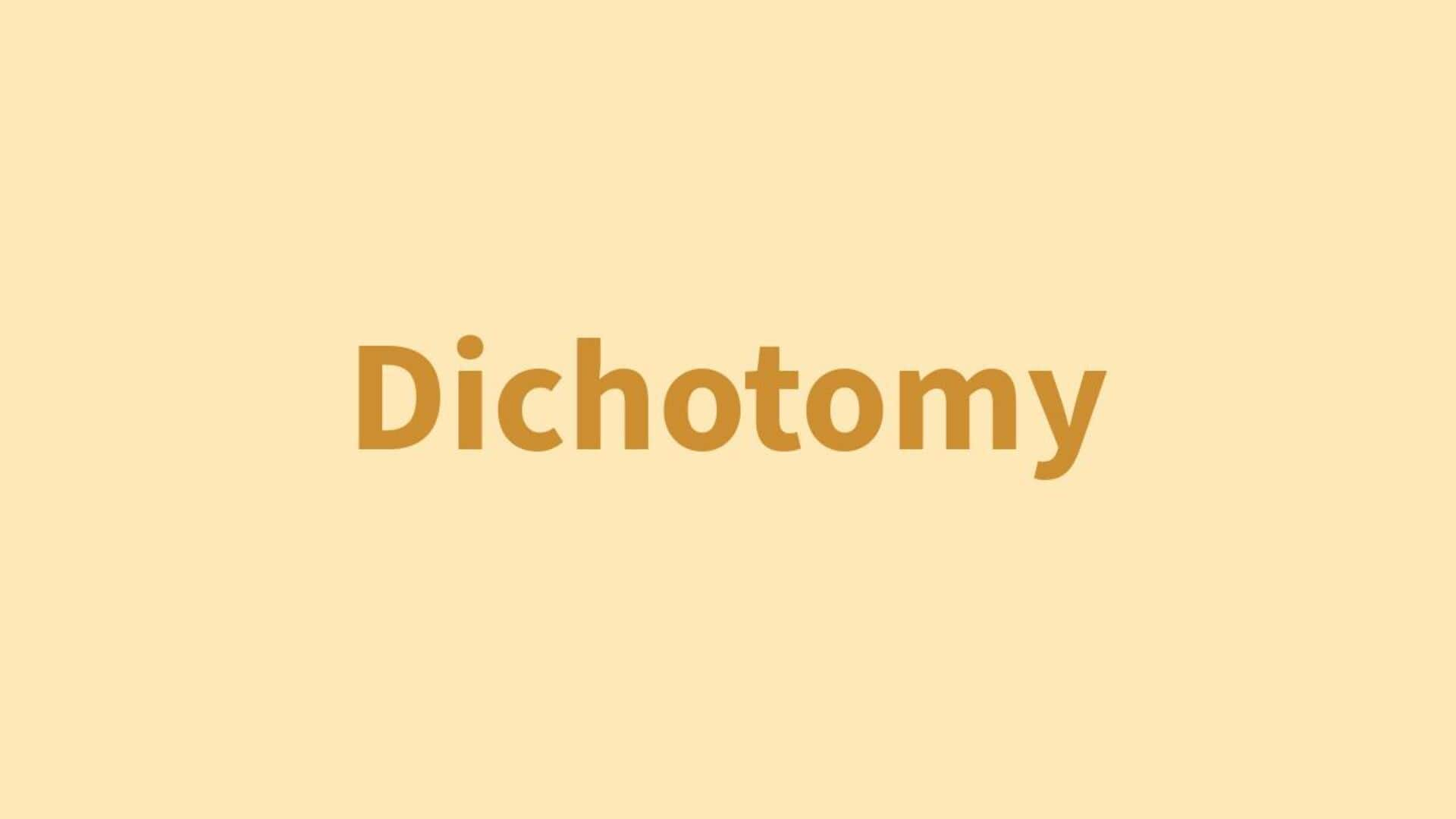
Word of the Day: Dichotomy
What's the story
"Dichotomy" is a noun that refers to a division or contrast between two things that are completely different or opposed.
It is often used to describe a clear distinction between two concepts, ideas, or groups, where each is entirely separate from the other.
For example, the "dichotomy" between good and evil is a common theme in literature and philosophy.
Origin
Origin of the word
The word "dichotomy" comes from the Greek dichotomia, which means "cutting in two" or "division into two parts." It is formed from dichos meaning "in two" and temnein meaning "to cut."
The term has been used since the 16th century to describe the separation of ideas or entities into two distinct categories or opposites.
Synonyms
Synonyms for 'dichotomy'
Some common synonyms for "dichotomy" include division, contrast, split, polarity, and separation.
These words all reflect the idea of a distinct or sharp difference between two things.
However, "dichotomy" often emphasizes a more fundamental or clear-cut division, while synonyms like "contrast" can be used for less absolute distinctions.
Usage
Sentence usage
Here's how "dichotomy" can be used in sentences:
"The 'dichotomy' between urban and rural life is often portrayed as a stark contrast in terms of lifestyle and values."
"The debate created a 'dichotomy' in public opinion, with people either strongly supporting or opposing the new policy."
"The philosopher explored the 'dichotomy' of mind and body, questioning how the two are connected or separate."
Contrast
Why use the word
Using "dichotomy" allows you to highlight clear contrasts or divisions in complex ideas or situations.
It helps articulate the differences between two opposing concepts or perspectives, making it a useful term in discussions of philosophy, politics, literature, or any subject where stark contrasts need to be addressed.
It adds precision to your language.